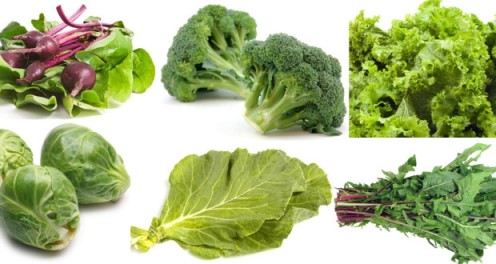Vitamin K is an important nutrient and necessary for the synthesis of various proteins that function as mediators in coagulation and anti-coagulation of blood.
Vitamin K deficiency in an individual increases the risk of hemorrhage (bleeding). Another important function of this vitamin is the activation of a protein called osteocalcin, which is responsible for building and strengthening bones.
This vitamin is available in the form of dietary supplements, however, usually do not need to take these supplements; you only need to consume foods rich in this vitamin. These foods also provide the body with other vitamins and minerals that help vitamin K function properly.
Foods rich in vitamin K
Kale
This dark green leafy vegetable is one of the richest sources of this vitamin. One cup of kale has cooked through 1062.10 mcg of vitamin K.
One should make sure this vegetable cooking correctly to enjoy all the flavor and nutritional benefits for optimum. It is advisable steam the kale for at least 5 minutes before consumption.
Spinach
Spinach is another food high in vitamin K. One cup of these boiled leaves has 888.48 mcg of this vitamin. Recommended boiling the leaves no more than 1 minute to minimize the loss of flavor and nutrients.
Cabbage
This is a variety of cruciferous having the third highest content of vitamin K around 836.00 micrograms of this vitamin is present in 1 cup steamed. Like other cruciferous vegetables are consumed after cooking properly.
Read This: How to consume vitamin E
Chard
Another nutritious vegetable rich in various vitamins and minerals is the chard. A cup of this cooked vegetable contains 572.77 mcg of vitamin K. It is recommended to boil the spinach before consumption to reduce the high concentration of oxalic acid in it. Cut the leaves and stems before boiling for 3 minutes allows even cooking.
Turnip greens
Turnip greens are another variety of cruciferous vegetables with rich content of vitamin K. One cup of cooked turnip greens contains 529.34 micrograms of this vitamin.
This must be the steam of no more than 5 minutes to preserve its nutritional value and taste, as well as to prevent the excessive cooking. It is commonly used for the preparation of various foods and for improving the taste of different dishes.
Mustard Greens
It is one of the most popular types of cruciferous vegetables with a cup of cooked mustard greens contain 419,30 mcg of vitamin K.
Skip this plant is recommended in place of water or steam, as it helps to keep leaves and stems to get watery and soft. Skip also preserves the flavor and nutritional value of vegetables.
Brussels sprouts
Brussels sprouts offer a wide range of health benefits, with its high nutritional value. It can be consumed raw. A cup of sprouts containing 155,76 mcg of vitamin K. Steaming sprouts significantly improves some of its health benefits.
The steam should be no more than 5 minutes; the Brussels sprouts cooked lose their nutritional value and tend to emit an unpleasant sulfur odor.
Parsley
Herbs are well known for their various medicinal properties and high nutritional value. Parsley is one of the most popular herbs in the world with a high nutritional value and health benefits.
Two tablespoons of this herb has 124.64 mcg vitamin K. Popularly used to enhance the flavor and taste of different foods in different cuisines.
Romaine lettuce
This green leafy, healthy and tasty vegetable is often eaten raw in salad. It’s another rich source of vitamin K with 2 cups of these sheets containing 96.35 mcg of this vitamin.
Romaine lettuce is often used to decorate various dishes and added to the sandwiches to improve its flavor and nutritional value.
Broccoli
Broccoli is one of the most popular vegetables of high nutritive value worldwide. The content of vitamin K in a cup of raw broccoli is around 92.46 mcg.
It is consumed after steaming correctly for no longer than 5 minutes, as overcooking broccoli destroys both for taste and nutritional value.
Check This: Detox Your Body With These 7 Vitamins and Minerals
Asparagus
This is a fleshy green vegetable rich in a wide range of vitamins, minerals and other nutrients. One cup of raw asparagus has 55.74 mcg of vitamin K.
This succulent and tender vegetable is often added to salads and omelets, while also used to enhance the flavor of the various pasta and chicken dishes.
Cabbage
Cabbage is another excellent source of many essential nutrients. The content of vitamin K in 1 cup of raw cabbage is 53.20 mcg.
The recommended process of cooking cabbage saute for a few minutes after cutting vegetables into small pieces. The traditional methods of boiling and steam is used to cook the vegetables tend to ruin the taste and nutritional value of cabbage.
Basil
Basil is another herb nutrient consumed both fresh and dried form. It is another good source of vitamin K with two teaspoons of this herb contains 48.01 micrograms of the vitamin.
One of the most popular uses of basil is to make a kind of sauce called pesto. This herb is widely used as an ingredient for the preparation of different dishes from cuisines around the world.
Thyme
Thyme is an herb easily accessible with a strong aroma and many health benefits. The cool, dry thyme is used in various dishes of beans, vegetables and egg to add to its flavor.
Two teaspoons of herb has 48.01 mcg of vitamin K, which makes it one of the herbs richer in K-vitamins. It is also added to various dishes of pasta, soups and fish.
Leeks
Leeks are varieties of allium vegetables that have a unique combination of many nutrients and flavonoids that contain sulfur. These are also rich in vitamin K with 1 cup of raw leeks containing 41.83 micrograms of this vitamin.
The leeks are added to salads, omelets and vegetables, while this plant can also be eaten after saute with lemon juice and herbs.
